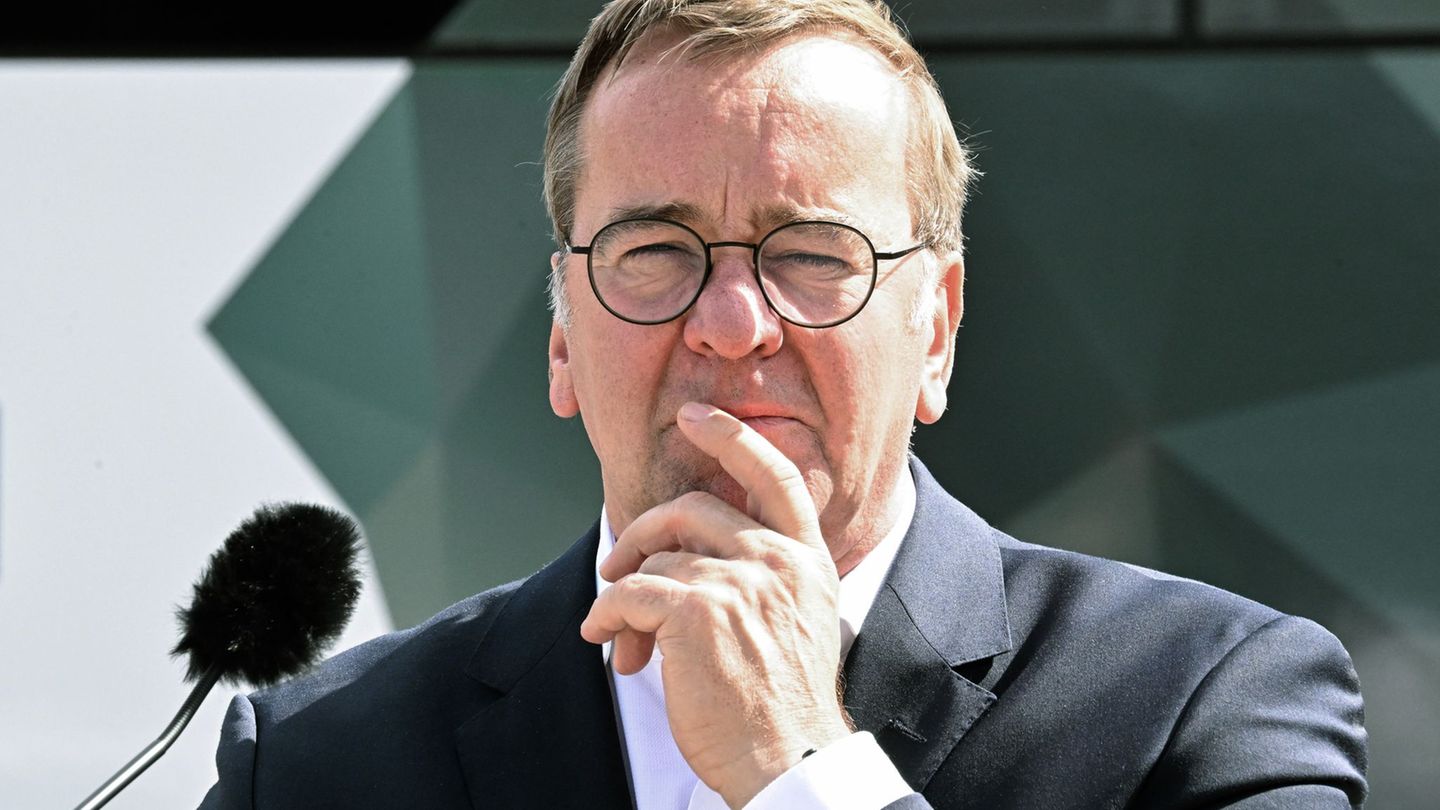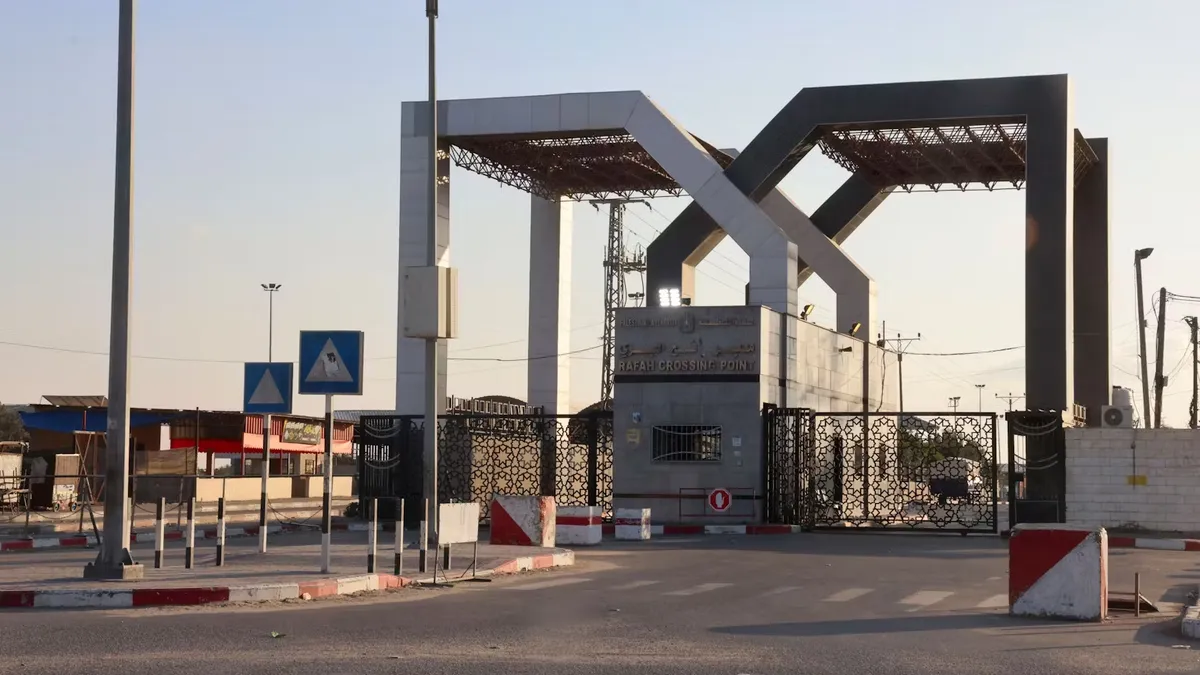There appears to be movement in the sluggish negotiations between Israel and Hamas. Meanwhile, Israel awaits Chancellor Scholz. The news at a glance.
Shortly before the planned resumption of indirect negotiations on a temporary ceasefire in the Gaza war, Chancellor Olaf Scholz is holding talks in Israel again this Sunday. “It would be important that an agreement is reached very quickly about a ceasefire that would allow the hostages to be released and at the same time allow humanitarian aid to come to Gaza,” said the SPD politician before his departure.
According to local media reports, Israel’s war cabinet wants to decide whether to send a delegation to Qatar on the same day that Scholz meets, among others, Prime Minister Benjamin Netanyahu. There, the recently stalled talks on a ceasefire are set to continue in the capital Doha after the Islamist Hamas presented a new proposal to the mediators.
Air Force plans to drop more relief supplies
Scholz first wants to meet King Abdullah II in Jordan before traveling on to Israel. “We have a difficult situation. It is necessary for aid to reach Gaza on a larger scale now,” he said. On the same day that the Chancellor is speaking to Netanyahu, Israel’s President Izchak Herzog and others about the situation in the war, which has now been going on for more than five months, the German Air Force is planning another drop of relief supplies over the war zone.
The Air Force parachuted in a first delivery of rice and flour for the suffering population on Saturday over the north of the sealed-off coastal strip. The supply crisis there is particularly bad. According to the UN Children’s Fund Unicef, 31 percent of children under the age of two are now acutely malnourished.
Again protests in Israel against Netanyahu government
A day before the Chancellor’s visit, thousands of people demonstrated in Tel Aviv and other Israeli cities for the release of hostages held by Hamas and against the government of Prime Minister Netanyahu. In some places, people set small fires, set off smoke bombs and chanted for the hostages to be released. The police used water cannons to break up individual gatherings. Relatives of the hostages called for a new deal for their release and called on the government to act quickly. “They don’t have any more time, we don’t have any more time. Do something now, we need you!” said a relative at a rally.
New Hamas proposal raises hope
Hamas had previously presented a new proposal during mediation talks in which it no longer demanded that Israel end the war before the first hostages were exchanged for Palestinian prisoners in Israeli prisons. According to the proposal, the Islamists would make Israel’s cessation of hostilities a prerequisite for a second phase of hostage releases. In doing so, Hamas came closer to the contents of a multi-stage plan that the mediators USA, Egypt and Qatar had presented several weeks ago and which Israel had accepted. The Islamists’ new proposal appears to give cause for cautious optimism.
Israel’s Prime Minister Netanyahu dismissed the new proposal as “unrealistic”. At the same time, however, it was said that Israel would send a delegation to Qatar. According to local media, the security cabinet wants to decide on the Israeli position on Sunday evening. Accordingly, the head of the foreign secret service Mossad, David Barnea, would not leave for Doha with his delegation until Monday. This would be the first time in two weeks that Israeli negotiators would take part in the indirect talks in Qatar.
On October 7, terrorists from Hamas and other groups kidnapped around 250 people in a massacre in Israel. During a ceasefire at the end of November, 105 hostages were released. According to Israeli government figures, around 100 hostages are still alive. The massacre was the trigger for the war in the Gaza Strip.
Scholz warns of an offensive in Rafah
A ceasefire is needed that will last “for the near future,” said Chancellor Scholz before the start of his talks in Israel. The focus will be on Israeli preparations for a ground offensive in Rafah in the south of the Gaza Strip, which Scholz urgently warns about. “We are concerned about the further progression of military development.” There is a particular danger that a comprehensive offensive in Rafah could result in a large number of civilian casualties. This must be avoided at all costs, said the Chancellor on Saturday before the start of his two-day trip. In Rafah, it is estimated that 1.5 million Palestinians are currently seeking protection from the fighting in other areas of the Gaza Strip in a confined space and under miserable conditions. Aid organizations warn of many more civilian deaths.
An Israeli army spokesman reiterated on Friday that in the event of a military operation in Rafah, the population would have to be brought to safety. It is believed that not only the leadership of Hamas is in the city on the border with Egypt, but the remaining battalions of the Islamist terrorist organization are also located there, said spokesman Arye Shalicar. Netanyahu previously reiterated that Israel would advance on Rafah despite international pressure. A victory over Hamas without an operation in the city is not possible.
Source: Stern
I have been working in the news industry for over 6 years, first as a reporter and now as an editor. I have covered politics extensively, and my work has appeared in major newspapers and online news outlets around the world. In addition to my writing, I also contribute regularly to 24 Hours World.




